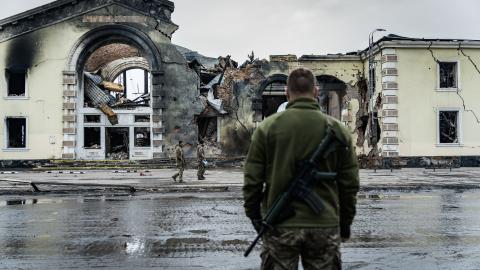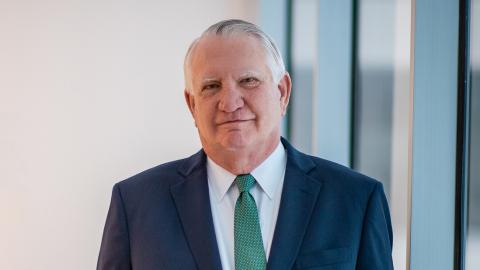Reports are circulating that Wikileaks.org is poised to publish a classified U.S. military video of a May 2009 U.S. air strike on the Afghan village of Granai in which as many as 140 civilians, including many women and children, may have perished. In April, the website--an online repository of leaked information--posted a U.S. military video of a 2007 Baghdad firefight in which two Reuters cameramen and as many as 10 others were killed. It has already been watched by several million viewers.
Both videos were evidently leaked by a 22-year-old disaffected Army intelligence analyst, Bradley Manning, who was detained by the military in May after having admitted in a private online conversation to providing them, along with a massive trove of 260,000 diplomatic cables, to Wikileaks.
Such videos bring wide attention to horrendous incidents of war. Did Wikileaks perform a public service by releasing them?
The benefits of maximum openness are indisputable. Our democracy rests on informed consent, with emphasis on the word informed. The electorate relies upon the free flow of information to make considered choices about policies and the men and women who conduct them. In decisions about war and peace, the public's interest in information is at its zenith. The video of the Iraq firefight brings horrifically before our eyes the reality of war in ways that make us confront the basic questions of why and how we fight.
But there is another side to the coin. The display of videotapes in which our forces make mistakes, or do even worse, has costs that should not be denied. For one thing, the leaked Iraq video, as Secretary of Defense Robert Gates has remarked, provides the public a view of warfare "as seen through a soda straw." Wikileaks, itself a highly secretive operation run by Australian journalist/activist Julian Assange, actually posted two videos: a full-length version of the firefight, and a shorter version edited into nothing less than a propaganda film with the caption "collateral murder."
Neither drew attention to what U.S. ground forces found when they came upon the grisly scene following the helicopter gunfire: namely, AK-47s and rocket-propelled grenade launchers (RPGs). Wikileaks's caption noted that "some of the men appeared to have been armed" but also added, insouciantly, that "the behavior of everyone appeared to be relaxed."
But it is precisely the presence of weapons, including RPGs, that goes a long distance toward explaining why cameramen for Reuters--pointing television cameras around corners in a battle zone--were readily mistaken by our gunships for insurgents. The video makes plain that in this incident, as in almost all military encounters in both Iraq and Afghanistan, our soldiers are up against forces that do not wear uniforms--a violation of international law precisely because it places innocent civilians in jeopardy.
Responsibility for civilian deaths in such encounters rests with those who violate the rules of war.
The Wikileaks videos also do not reveal the hundreds upon hundreds of cases in which American forces refrain from attacking targets precisely because civilians are in harm's way. That is today an iron rule in Afghanistan, and one for which our soldiers are themselves paying a price in increased casualties. Yet even with the greatest care, armed conflict cannot be sanitized. In almost every war America has ever fought, things on occasion go badly awry. In World War II, instances in which Allied forces massacred captured enemy soldiers were not unheard of. While such cases were a blemish on our military honor, broadcasting the facts to the world and thereby stiffening enemy morale would have been unthinkable in the midst of the great global conflagration.
Although our current struggle does not compare to World War II, there can be no doubt that the dissemination of military videos--far more potent in their impact than written dispatches--can have a profound affect upon our soldiers, inflaming opinion against them in the battlefield and placing their lives at risk. Such videos also undermine the larger counterinsurgency mission of winning hearts and minds. That is why the military keeps them classified. And that is why our laws allow for the punishment of those who violate their oaths and leak secret information, as Spc. Manning is alleged to have done.
Our country depends upon openness for its vitality. But it also often depends upon secrecy for its security. The two imperatives are always in tension. Wikileaks has brought the tension to the fore.















